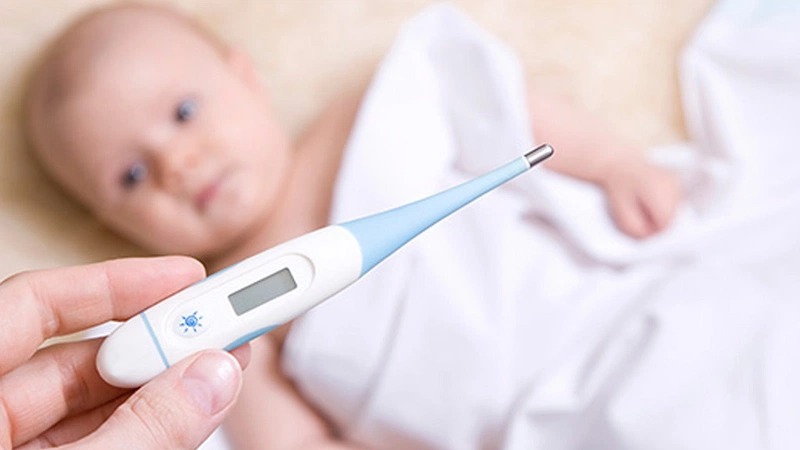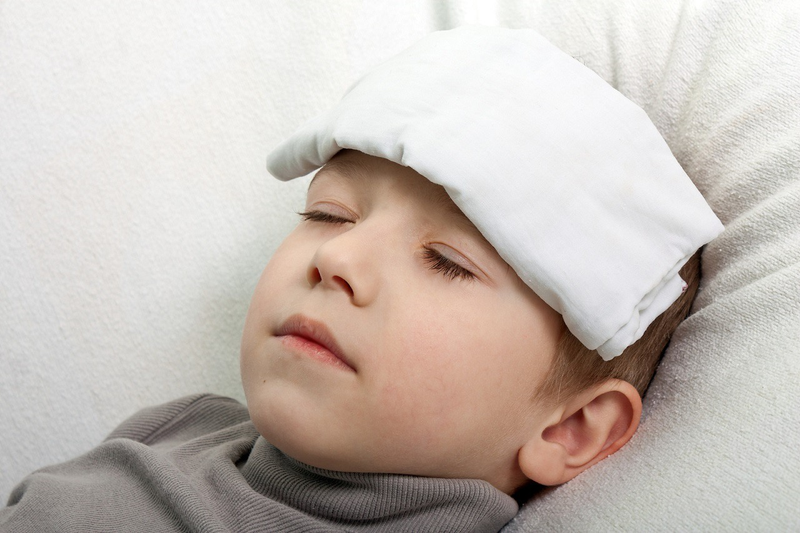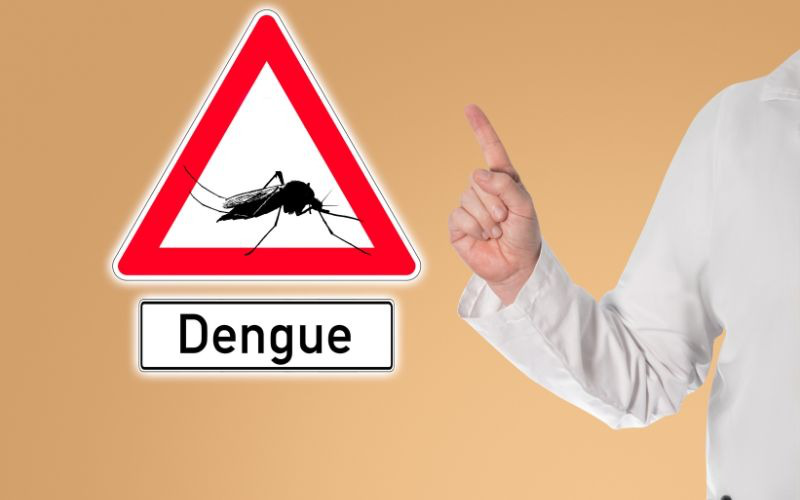When a child has a high fever that does not go down, this condition not only causes anxiety for parents but can also be a sign of serious illnesses. Correctly and promptly handling a child’s high fever that does not go down helps protect the child’s health and find effective treatment.
Fever is the body’s natural response to infection, but when a high fever persists, it can be a serious sign that requires special attention. Especially when a high fever does not go down for a long time, this can indicate underlying diseases such as dengue fever, a dangerous infectious disease. To ensure the safety and health of children, it is extremely important to master the steps to handle a child’s high fever that does not go down.
What is a high fever that does not go down?
A high fever that does not go down is a serious condition that parents need to pay attention to, especially when the fever persists and shows signs of serious diseases such as dengue fever. A persistent high fever is not only a worrying symptom, but can also be a sign of a more serious health problem that needs to be treated promptly and properly.
When a child has a persistent high fever, the body temperature can reach 39 to 40 degrees Celsius and does not decrease despite the use of antipyretics or other measures. This condition can cause many negative effects on the child’s health, including neurological disorders, headaches, dizziness, and in young children, can lead to convulsions. Prolonged high fever can also affect the child’s circulation and respiration, causing fatigue, poor appetite, and discomfort.

High fever that does not go down makes many parents worried
One of the serious diseases that can cause a high fever that does not go down is dengue fever. This is an infectious disease caused by the Dengue virus and is often transmitted by Aedes mosquitoes. Dengue fever can start with a persistent high fever, accompanied by other signs such as rash, muscle and joint pain, severe headache, and sometimes bleeding symptoms. If not detected and treated promptly, the disease can progress rapidly, causing serious complications such as dengue shock, severe bleeding, and even death.
Therefore, when children show signs of a high fever that does not go down or have symptoms suspected of dengue fever, parents should immediately take their children to a medical facility for examination and treatment. It is important not to be subjective, even if the child’s temperature seems to have decreased. It is necessary to closely monitor the child’s condition and take treatment measures as prescribed by the doctor to ensure the child’s health and safety.
Proper treatment when your child has a high fever that does not go down
Identify the symptoms
When your child has a high fever that does not go down, you first need to identify the related symptoms and signs to have appropriate treatment measures. Some important symptoms to pay attention to include:
- Prolonged high fever: Body temperature from 39 to 40 degrees Celsius does not decrease, or suddenly decreases and then the fever returns.
- Fatigue, abdominal pain, lethargy: Symptoms accompanying high fever can be signs of serious complications.
- Red skin, cool hands and feet: Inconsistent skin and body temperature can be a sign of severe dengue fever.
- Dark eye mucosa: Can be a sign of bleeding.
Home Treatment
If your baby has a high fever that does not go down but there are no serious signs or complications, parents can take the following home care measures:
- Regularly monitor the temperature: Use a thermometer to measure the baby’s body temperature periodically and record it.
- Reduce fever by physical methods: Wipe the baby’s body with warm water, avoid using cold water because it can cause vasoconstriction and make the fever worse.
- Drink plenty of water: Provide enough water for your baby to prevent dehydration and help the body recover.
- Let your baby rest: Make sure your baby gets enough rest and limits physical activity.

Reduce fever in children by applying warm water
When should you take your child to the hospital?
If your child has a high fever that does not go down or seems to be seriously ill, you should take him or her to a medical facility immediately. Some signs that require hospitalization include:
- High fever that does not respond to fever-reducing medications or physical therapy.
- Signs of dengue fever: Red skin, cool hands and feet, dark mucous membranes of the eyes, and symptoms of abdominal pain and fatigue.
- Serious complications: Cold hands and feet, lethargy, weak pulse, difficulty breathing, or signs of bleeding such as nosebleeds, bloody diarrhea, or vomiting blood.

When children have signs of high fever that does not go down for a long time, they should be taken to the hospital.
Upon hospitalization, dengue fever treatment will include the following measures:
- Intravenous fluids: To rehydrate and maintain circulating volume, especially when the patient has hemoconcentration or thrombocytopenia.
- Close monitoring: Monitor vital signs, blood tests, and the patient’s clinical status to detect early signs of complications.
- Symptomatic treatment: Use antipyretics, analgesics, and supportive measures to treat symptoms as prescribed by the doctor.
Dengue fever prevention measures
Dengue fever prevention is very important, especially in rainy weather conditions when Aedes mosquitoes thrive.
- Mosquito repellent: Use mosquito nets, mosquito repellent, and avoid mosquito bites.
- Clean the environment: Eliminate stagnant water around the house to reduce mosquito breeding grounds.
- Health monitoring: Regular health check-ups and monitoring of dengue fever symptoms for early detection and timely treatment.

Monitor your baby’s health and prevent the possibility of dengue fever.
A high fever that does not go down is a serious condition and needs to be treated carefully. You should take your child to a medical facility immediately for timely treatment to help detect dengue fever in its severe stage and provide appropriate treatment. Parents need to pay attention to monitor their child’s temperature and symptoms, take measures to reduce fever at home, and do not hesitate to take their child to a medical facility when necessary. Proper treatment and care, along with effective prevention measures, can help prevent and control dengue fever, ensuring the health of children.





